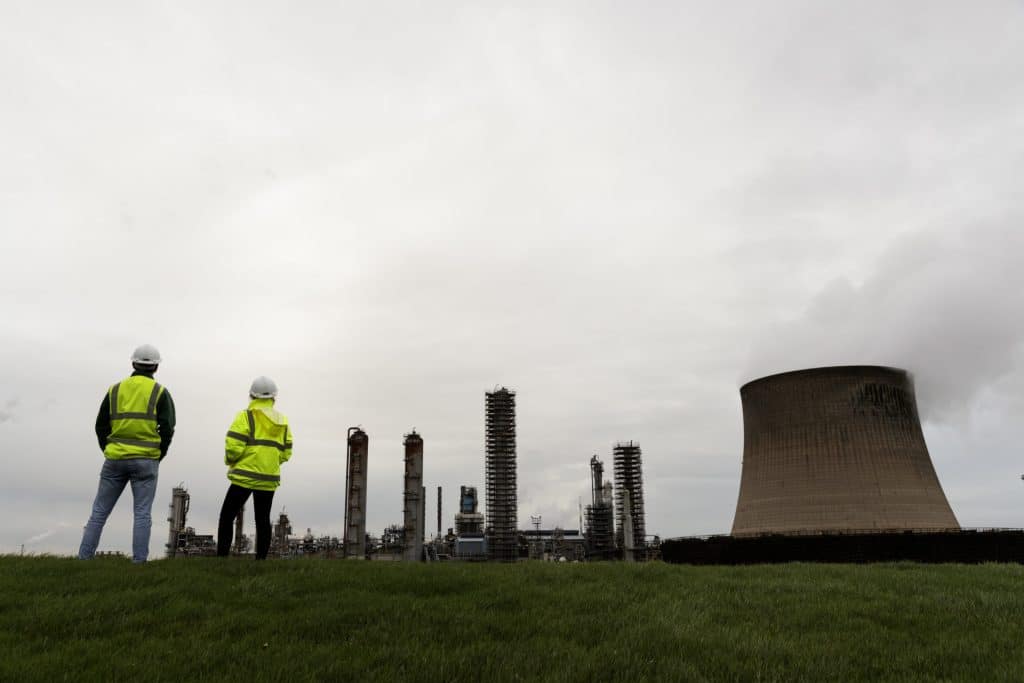Ministers vow cheaper and greener heating with Warm Homes Plan

This post was originally published on this site

The government has launched an expansion of its Warm Homes Plan that ministers hope will warm the cockles of households and manufacturers alike.
Announced earlier this month, the government has set out a package of measures it says will benefit up to 300,000 households from next year. The measures include grants for technologies such as heat pumps, support for renters and low-income households, and new investment in British manufacturing.
Under the Warm Homes Plans, unveiled by the Department for Energy Security & Net Zero (DESNZ), the government says it will also remove planning rules that require permission is sought for the installation of heat pumps.
Miatta Fahnbulleh, minister for energy consumers, said: “The idea at the heart of our Warm Homes Plan is a simple one – all families deserve the security of a home they can afford to heat.
“But for too long, that has been out of reach for far too many people who have been left with draughty homes and sky-high bills. That is why we are taking immediate action today to make cleaner heating available to more households.
“This follows our plan to lift over one million households out of fuel poverty by consulting on boosting minimum energy efficiency standards for all renters by 2030, delivering warmer homes and cheaper bills.”
The Warm Homes Plan measures include:
- Helping thousands more families to get £7,500 off the cost of a heat pump, with an extra £30m for the Boiler Upgrade Scheme this financial year, while almost doubling the budget to £295m for the next financial year
- Overseeing around £3.2bn of investment in warmer homes across 2025 to 2026 from government, social housing providers and supplier obligations, delivering measures to help lower bills and support cleaner heating to up to 300,000 households
- Lifting over one million households out of fuel poverty under plans to consult on increasing minimum energy efficiency standards for all rented homes by 2030
- Consulting on plans to increase energy efficiency standards for new boilers and heat pumps, saving households with a new gas boiler £30 a year on running costs
- Allowing more households in England to install an air source heat pump without the need to submit a planning application from early next year, by removing the rule requiring them to be installed at least one metre from a property’s boundary. This will provide greater flexibility, with rules still in place around listed buildings
- Introducing a reformed Clean Heat Market Mechanism on 1 April 2025, with new changes to make sure manufacturers have the time they need to scale up supply chains, making heat pumps an even more attractive choice for households and boosting sales without penalising those buying a new gas boiler. There will also be government support available for each and every heat pump installation that is required under the mechanism in 2025 to 2026
- Supporting industry by investing over £5m in Ideal Heating as the very-first award from the Heat Pump Investment Accelerator competition, kickstarting a homegrown heat pump industry to boost the UK’s energy security and support hundreds of low-carbon jobs
- Working with trade unions to ensure good jobs throughout the supply chain
Industry reaction
Mike Foster, chief executive of Energy and Utilities Alliance, said: “Minister Fahnbulleh has constructively engaged with industry and British manufacturers, who have warmly welcomed this new approach. By working in partnership, we have an outcome which no longer unfairly penalises business and consumers. That is a big win for households across the country.”
Chris O’Shea, chief executive of Centrica, said: “We are delighted that the government is making it easier for households to install heat pumps by removing the outdated 1m planning rule in England and increasing the funding available in the Boiler Upgrade Scheme. Heat Pumps will play an integral role in decarbonising home heating.”
Greg Jackson, chief executive of Octopus Energy, said: “More than a third of customers who order a heat pump drop out because of planning issues, leaving them stuck with dirty, inefficient gas boilers. Removing outdated and unnecessary red tape is an urgent priority to grow this sector and get low cost, safe, clean heating technology into British homes.”
Daniel Särefjord, chief executive of Aira UK, said: “[This] announcement will be a game-changer for heat pump adoption across the UK. It is a much needed and welcomed intervention from the government to ensure customers can save serious amounts of money on heating costs and enable our country to meet net zero targets.
“Clean heating solutions are essential for driving the UK’s transition to a lower-cost, lower-carbon, and more stable energy market, with heat pumps playing a central role in this evolution. This step highlights a strong commitment to tackling climate change while supporting the growth of the clean energy-tech sector and creating thousands of new jobs within the green skills workforce across the country.
Carl Arntzen, chief executive of Worcester Bosch, said: “We welcome the announcements from DESNZ on the removal of some of the siting barriers for heat pumps and the extra funding being made available for the Boiler Upgrade Scheme. We are hopeful these measures will enable more homeowners to view heat pumps as a realistic heating alternative.”
Henrik Hansen, managing director at Vaillant Group UK, said: “[The] announcement represents a positive step forward addressing specific challenges felt by homeowners when considering the installation of a heat pump. By easing installation requirements, it addresses some of the barriers that have previously discouraged the adoption of this technology and shows what can be achieved by business and government working together.
“We welcome the boosted budget to the Boiler Upgrade Scheme allowing more homeowners to access funding when installing a heat pump. Additionally, we look forward to further announcements in support of the government’s Warm Homes Plan, to achieve the UK’s goal of reducing emissions and lowering the use of energy for households across the UK.”
Kate Henderson, chief executive of the National Housing Federation, said: “With England’s homes producing more carbon each year than all the country’s cars, housing associations are committed to playing their part in tackling the climate emergency and supporting the government to meet its net zero targets, through decarbonising their homes.
“We welcome the confirmation of the boost in funding, which is essential to this work, kickstarting the government’s Warm Homes Plan and helping tackle fuel poverty. The policy measures announced today will be essential to this shared mission, scaling the supply chain and driving down the costs of the clean, efficient home heating systems of the future.
“We look forward to working with the government ahead of next year’s Spending Review on the design of the full Warm Homes Plan, and in bringing forward their manifesto commitment of a significant increase in funding for retrofitting homes.”
Matthew Scott, policy and practice office at the Chartered Institute of Housing, said: “This announcement is another big step in the right direction. It will significantly support the sector’s plans to tackle fuel poverty, while simultaneously cutting carbon emissions from our homes and boosting local supply chains.
“With Ofgem’s energy price cap set to stay high for the foreseeable future, we hope the government will use the spring spending review to deliver an even larger volume of funding for energy efficiency and warmer homes.”
Clear direction
Adam Scorer, National Energy Action’s chief executive, said: “Warm homes are the foundation of healthier, happier, more productive lives, especially for fuel poor households facing higher costs on the lowest incomes. NEA knows that these households often suffer ill-health which is worsened in cold conditions. We look forward to work with government to realise the full ambition and benefits of a comprehensive plan for Warm Homes.”
Jan Rijnen, managing director UK and Ireland at Baxi Heating, said: “[This] announcement of additional funding for the Boiler Upgrade Scheme is welcome, together with amending planning rules which will help simplify heat pump installations. We are committed to working with government to deploy practical and affordable solutions that help decarbonise homes, with the support of customers, industry, and manufacturers like Baxi. We will continue to work with government to further improve the Clean Heat Market Mechanism in the years ahead.
Chris Galpin, energy expert at E3G, said: “These welcome changes will make it easier for people to upgrade their heating systems. After years of uncertainty and delay, this clear direction is a much-needed boost for the industry. Whilst we will need to see further investment next year, this is the right first step towards lowering energy bills and creating new, good quality jobs in British manufacturing.”
Stew Horne, head of policy at Energy Saving Trust, said: “This package of announcements brings welcome detail on how the UK government will support people in practice to install low carbon heating and incentivise the supply chain to meet demand. We welcome the removal of a key barrier to heat pump installation and confirmation of additional funding for the Boiler Upgrade Scheme.
“Likewise, the Clean Heat Market Mechanism will play an important role in reducing the upfront cost of heat pumps, encouraging manufacturers to offer competitive deals. It also provides much needed certainty for industry and the supply chain to scale up to meet the UK government’s ambition.
“Signalling the upgrade of 300,000 homes to make these warmer, more affordable to heat and cutting carbon, is a welcome start to the Warm Homes Plan that offers a benchmark for scaling up. We look forward to seeing more about the programme of delivery to make this happen.”
Charlotte Lee, chief executive of the Heat Pump Association, said: “The package of measures announced by the government today demonstrates their commitment to accelerating the decarbonisation of heat in the UK.
“We welcome the clarity provided to the market on the long-anticipated Clean Heat Market Mechanism and the confirmation of additional funds for the BUS, both of which enable the sector to invest with confidence. The changes to the Permitted Development Rights will help to streamline the heat pump installation process for installers and consumers and support an accelerated deployment of heat pumps over the coming years.”
Bean Beanland, chief executive of the Heat Pump Federation, said: “The incoming government has come flying out of the blocks on macro-energy policy, but has been more measured in its approach to the energy transition at domestic scale. This set of announcements marks what we hope will be a series of initiatives over coming months, designed to encourage the uptake of decarbonised heating solutions in homes across the UK.
“From the work undertaken by the Heat Pump Federation with community groups across the land, it’s clear that the appetite for genuine and robust information, and for a positive set of messaging, is strong. Measures such as those announced today, together with future changes that are already in consultation or discussion, will continue to build confidence with both consumers and with our sector’s supply chain, so that homeowners and landlords are assured that the transition away from fossil fuels can be taken as their existing boiler reach end-of-life.”
Ian Rippin, chief executive at MCS (Microgeneration Certification Scheme), said: “The confirmation of the Clean Heat Market Mechanism is a positive step for the sector and the changes to support the scaling up of the industry address concerns previously expressed. We look forward to continuing our work with the scheme to ensure that heat pump installations are to industry-recognised standards and are accurately recorded and reported. This is crucial in giving everyone confidence in the technology.
“[The] announcement of changes to Permitted Development Rights are another welcome move that will support the deployment of heat pumps. We have worked to coordinate the industry’s responses and support with updates to tools and our standards, such as the MCS Planning Standard for Permitted Development Installations of Air Source Heat Pumps (MCS 020), to facilitate these changes.
“The Boiler Upgrade Scheme has been a great success in supporting the industry – we welcome any additional funding and look forward to the scheme continuing to grow and expand.”
Image credit: I AM NIKOM/Shutterstock
Read next: Leeds city heat network marks latest milestone
Are you a building professional? Sign up for a FREE MEMBERSHIP to upload news stories, post job vacancies, and connect with colleagues on our secure social feed.





Responses